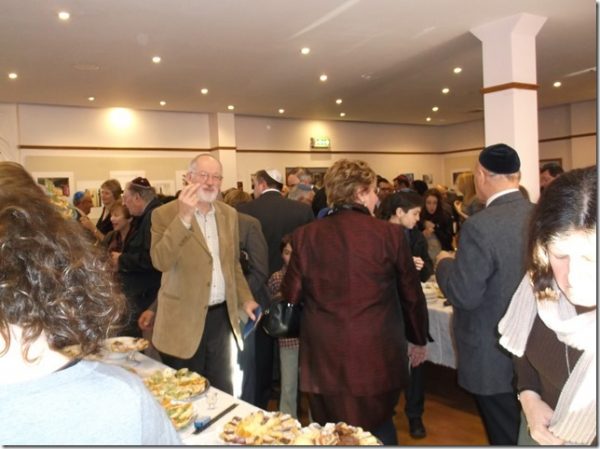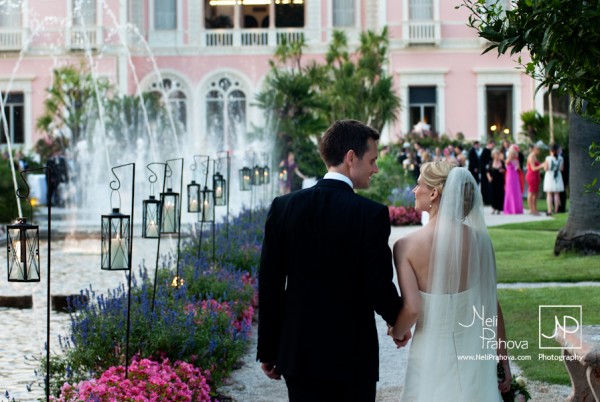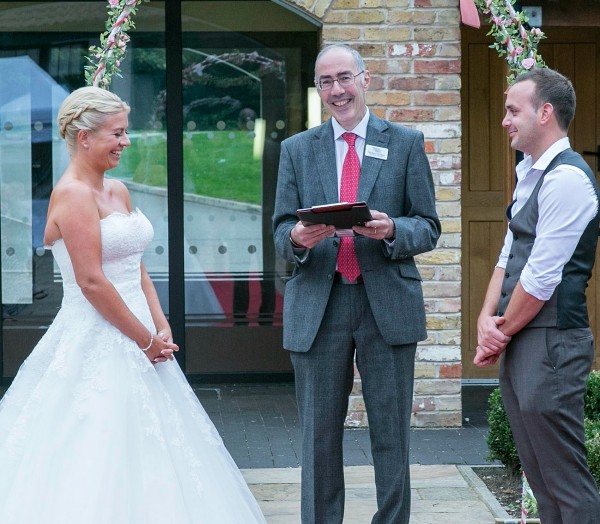
by Michael | Jul 10, 2018 | Blog
Your big day is all about you. You really must have a wonderful time. But don’t forget. You are inviting guests and they will come to support you. They need to be kept happy too.
Let’s look at what might upset them. That way, you can avoid doing so!
Bad dates
If possible, don’t arrange your wedding during a major event like Wimbledon or the World Cup or over Christmas or Summer holidays. If you have to do this, then give plenty of notice. You can’t complain if people don’t attend, when they’ve already booked their holiday (and people may book a year ahead).
Invitations
Don’t leave room for misunderstanding. Do you really mean for your friends’ 4-year-old child to come too? What about a “plus one”? Then, if you’re dividing the whole event up into several events (eg ceremony, drinks reception, meal, disco), make it quite clear who is invited to which.
Seating plan
Always a difficult one. Don’t seat wedding guests too close together. Try and be aware of who it might be unwise to seat near to whom. Even if it’s so tempting to see someone’s reaction when you’ve seated them next to their ex!
Expense
Cash bars are not popular. To reduce your expenditure, but to keep guests happy, supply a limited selection of wine, beer, champagne, and soft drinks (at the table). And try having a ceremony earlier in the day. People are less likely to want alcohol then.
Melt-down or frost
Although you can’t control the climate, you can ensure the experience does not become a deterrent. If the ceremony is outdoors and in hot weather, ensure there is sufficient shade and/or fans and arrange for cold water to be available; blankets and umbrellas could be laid on for the winter.
The food
It’s a nice touch to find out about guests’ allergies or dietary requirements in advance. You obviously need to work with your caterers to ensure there will be sufficient food and that it is of decent quality. You can probably arrange a food-tasting in advance. (If you’re only offering nibbles, then this should be made clear on the invitations).
Children’s menus should not be too exotic, but can be a bit more imaginative than chicken wings.
Timings
Do what you can to ensure that the photographs don’t go on for ever – or the speeches. You can reasonably give instructions about this beforehand.
It is also a good idea to plan things so there are not huge gaps between, say, the ceremony and cocktails, or before the reception. Nobody likes ‘dead time’.
The music
You’ll never please everyone all the time, but music before the dancing should be background level, and not everybody will want to have tub-thumping, ear-splitting music for the dancing. This will apply even more if the majority of guests are more mature.
If money and space allows, there could be a small room for guests to retreat to, if noise or fatigue threatens to overwhelm.
Interacting
Do try and get round and speak to everybody – table to table is best – even to offer just a short acknowledgement (and it’s better than making people stand in a receiving line).
Don’t forget the thank-you cards either.
For help, especially planning the ceremony, please speak to Michael.
by Michael | Oct 25, 2016 | Blog
Are same-sex ceremonies actually so different from heterosexual ones?
They share the same obstacles and challenges – and rewards.
You may relish the process of preparing for your big day – or you may struggle with it. With the right preparations – however you may be celebrating it – your big day should be a delight, bursting with love, benevolence and happiness.
Sure, there are a few differences of detail, but the principles are the same or similar.
So let’s talk about weddings.
Challenges
- There can be nothing more challenging than your family! If they oppose your marriage, you can be in deep water, especially if they try to pressurise you.
- Choosing and obtaining the right suppliers is important, but can be difficult.
- Sorting out the invitations and venue can also be an interesting task!
Solutions
Let’s take a look at these, and see how we can deal with them.
Family
It may be that your family refuse to accept or recognise your partner. If you are closely attached to your family (they may even be paying for your wedding!), you may not want to make waves.
However, it is not they who will be living with your partner, but you! The ceremony is about you, not them. The bottom line is that it is your wedding and your big day. It is unfair for them to impose their choices upon you. Especially, for such an important event.
Of course, you should invite them to meet and get to know your partner, preferably informally. If the charm offensive doesn’t work, then think about asking your officiant to have a word. If it’s a religious ceremony, and your priest is already well-known to the family, then he may well start from a position of respect and can help smooth over the problems.
The ceremony itself may prove a sticking-point. You may not be allowed a religious service in a church, say. However, all is not lost because a civil celebrant can conduct a religious service all the same. Or a part-religious one. Or, indeed, a non-religious one. And because a civil ceremony is not formally structured, you can have your choice of participants, as well as readings, rituals and music.
You may be able to explain to, or show, the disapproving relative(s) that the service will in fact be spiritual, memorable and delightful. Better still, you may be able to invite them to read something (even of their choice!) at the event. That way, you can show how much you value them.
Suppliers
There’s nothing out of the ordinary to be said here, as your sexual orientation shouldn’t enter into it. You are likely to need catering, photography, flowers, a celebrant, a cake, maybe a limousine, entertainment (a magician, a DJ, a photo-booth etc.). There have been some recent, notorious cases of suppliers refusing to serve same-sex couples, but you can only feel pity for such intolerant people. Move on. There are plenty of others who will serve you excellently.
You need to take your time and do your research. Recommendation, websites, personal visits are all better than taking pot luck with Google. I have more advice on this subject in a blog: https://vowsthatwow.co.uk/how-to-avoid-wedding-rip-offs/
Venue
I have also written on this topic (please see https://vowsthatwow.co.uk/the-venue-of-your-dreams/), but here too you need to get in early, do your research and ensure, if possible, that you visit. The visit will allow you to get a feel for the atmosphere of the place. Crucially, you’ll be able to ask the event co-ordinator questions.
The jury is out on this one, but it may be worth checking that the venue has no problems with gay ceremonies.
The guests
The guest-list and (potential) table-plan is almost always a sticky issue for any wedding. Your budget must be adhered to and, most importantly, you and your partner must be in harmony over this. Ideally, so will your families (especially if they are bankrolling the event!). You may need to be very diplomatic …
Conclusion
So, in general, a same-sex and a heterosexual ceremony will differ very little. The officiant will need to check with the couple about the terms he/she will be using. Will it be “bride and bride” or “groom and groom”, and will the couple at the end be announced as “Mr & Mr X” or “Mrs and Mrs Y”? The wording of some of the readings may have to be changed, but, otherwise, a same-sex ceremony is basically the same as a heterosexual one.
Absolutely nobody needs to be put off from arranging a same-sex ceremony!

by Michael | Dec 8, 2015 | Blog
Asking you to beware that destination wedding may sound a bit melodramatic, but don’t be put off. As my last blog ought to have suggested, I have nothing against a destination wedding! In fact, I spoke about how wonderful it can be, provided you have the right civil celebrant.
However, there can be a few other things to look out for, if the wedding is to be the success that you are dreaming of.
Guests
A lot of thought is going to have to go into deciding whom you invite. I can’t advise you on that, as it obviously has to be your decision, but you will need to weigh up who absolutely has to be there (it may be the best man, parents, or whoever) and how you get them there.
Depending on where you are holding the ceremony, you will have to think about other people’s budgets (unless you’re lucky enough to be able to treat them to flights and/or accommodation).

Venue
I suggest a few considerations here (remarks which might equally apply to non-destination wedding venues too).
- If you are having a theme, will the venue be suitable?
- Is the venue licensed for civil ceremonies (or will you actually be marrying in a register office before you depart, say)?
- Don’t forget to check if the area is big enough (yet not too big) for your party – and whether you will need to hire any equipment (audio, seating, cutlery, etc.)
- Is there an in-house wedding co-ordinator – and will she be there on the day?
- Can the catering arrangements all be sorted satisfactorily? Will vegetarian or gluten-free options be wanted – or even possible? Can there be a cake?
- Does your package include menus, place cards, centerpieces, etc.?
Accommodation
It is probably simpler, if you stay in the hotel where the ceremony will take place. If not, ensure you organise transportation well in advance. At all events, try and do your homework before booking.
If you have guests arriving after you, ensure they know how to reach the venue from the airport/port.
Make sure you check their requirements before booking them in for at least bed and breakfast.
Before the wedding
The last thing you want is to be ill on your wedding day. Therefore:
- Avoid over-indulging in alcohol, especially the day before the ceremony
- Be conservative about what and how much you eat, especially on the eve of the wedding
- Don’t spend too long in the sun
- Ensure you keep well-hydrated (with bottled, still water, preferably)
A Wedding Blessing?
What about those people you didn’t invite or who couldn’t join you in your exotic location?
A lovely possibility would be to hire a room in a restaurant or hotel near your home back in the UK, and hold a bespoke wedding blessing ceremony just for your friends and family. A civil celebrant could compile and conduct a beautiful, meaningful short service for you.
Your guests would love having the chance to witness and participate in what is (to all intents and purposes) your marriage, and would appreciate the photo-opportunities. Knowing the legal bit is long over and done with, you would simply relax and enjoy the whole event.
That way, everybody can be happy!

by Michael | Nov 11, 2015 | Blog
Weddings are meant to be happy, wonderful, unforgettable occasions. Of course, you want a harmonious wedding. It, almost inevitably, will bring stress in its wake, and this sometimes spills over into the big day (and even beyond).
Here are some things to look out for, to ensure that the wedding day remains unforgettable for the right reasons!
Money
Money can be one of the sources of stress – after all, weddings do not come cheap. Agree and set a budget from day one (and stick to it).
The family
Usually, conflict is family-based. It can be between parents and the couple, but it can also be between the fiancés. Sometimes, the conflicts are the result of deep-seated issues that should have surfaced and been resolved previously. Often, the subjects are very petty.
The wedding should be a time of peace and harmony. Try reason and compromise where conflict arises (although there may come a time when you have to put your foot down!).
Intolerance
Features such as jealousy or desire for the limelight can be powerful motives for unpleasantness. Strong personalities who are unable or unwilling to see, let alone accept, other people’s viewpoints can create all sorts of problems.
An example may be when someone will not accept the idea of a gay wedding. It may be possible to talk them round and, if you can get them to the ceremony, they may actually enjoy it!
Be prepared to offer someone who means a lot to you a special role (eg as a reader) so that they feel valued and will then be prepared to give ground elsewhere.
Targets
You also have to achieve a balancing act. If you have a limited budget, whom do you NOT invite? Have you got enough jobs to distribute (eg usher, etc.) and will anybody feel left out? Have you done the best you can with the seating plan?
Guests
It is not just the hosts who can be affected by finances; it may also be the guests. They may need to lay out to get to the wedding, to stay overnight, organise baby-sitting, buy special clothes and purchase a present for the newly-weds.
There may be things you can offer (eg crèche or activities to entertain the children) to ease the stress for those guests.
Grudges
The period of time surrounding a wedding is not the time to address resentment and grudges. Family and friends need to ensure that they have any personal issues in check that might possibly upset (or even poison) the atmosphere at the wedding. If possible, these difficulties should be aired in a different environment, in a civilised way.
Weddings are all about love and warmth.
As long as underlying tensions have been dealt with effectively, well before the big day, the couple, their families and the guests have every chance of enjoying a wonderful, inspiring and, yes, unforgettable wedding.
by Michael | Apr 14, 2015 | Blog
Nowadays, same-sex weddings are legal in England & Wales and increasingly popular. Nonetheless, this is a field which may cause major opposition from the family. Let’s therefore take a serious look at this issue.
The guest list
All weddings face the inevitable question: whom do you invite? Selecting your guests is a tough one to answer at the best of times. You will probably start with close family and friends, but what if your closest relatives oppose your union?
Rejecting the rejectors
If it looks like relatives will boycott your wedding, do you go with the flow and simply not invite them? Isn’t it better all round to opt for your friends and (supportive) relations? After all, you’re likely to be spending a huge amount of money on the reception. Why should you have to accommodate people who won’t accept what you’re doing and, at worst, might even turn out to be trouble-makers?
No one would blame you for thinking twice before inviting people openly hostile to your union. On the bright side, they might decline and at least you’ll have gained kudos by having extended the olive branch!
An olive branch
Another advantage that might be gained from inviting disapproving relatives is that they might, albeit grudgingly, attend and – who knows? – eventually enjoy a tasteful and personalised ceremony. Wouldn’t that be something if you were able to ‘convert’ them and retain – even develop – a relationship with them?!
For many of us, there is the bond of love that unites us with our families. We may not always like our relations, but to upset and potentially do without them for the rest of our lives is something we would do only when all else has failed. Giving them a chance to stay connected with you (even loosely) is surely worth the effort.
If the worst comes to the worst, at least you’ll know you tried. And you could gain such a lot, if you can bring those relatives together with you.
Come what may, your wedding will be a commemoration of love, with promises for the future. It’s not the day to heal rifts, but it may be the pathway to do so, and that is something which should be embraced.
A few thoughts
Why should a gay wedding be drastically different to a traditional, heterosexual one? There’s no reason why women should not be in white, and carrying bouquets of lilies. Men can certainly be in suits. The wedding day is the most important day of their lives, and they are entitled to choose to mark it by looking their very best. The affair can be elegant and tasteful – and, in my view, should be.
Gay marriage is legal in most States of the US and is becoming commonplace in the UK too, so we all need to become more comfortable with the concept.
In a ‘traditional’ gay wedding, there are some questions to consider: should there be “bridesmaids” – or even whatever the masculine equivalent is? Or a combination of them? And what about surnames? Should either of the pair change their name after marriage? If so, which one? Presumably, that will be down to choice.
There may be some decisions for the officiant: instead of “you may kiss the bride”, the easiest thing would simply be “you may kiss”.
Of course, at present, there’s not really much of a precedent for gay marriages, so the traditions are up for grabs. But do we need to invent any, actually?
To find a civil celebrant for your personalised ceremony, look no further than https://vowsthatwow.co.uk/civil-weddings/




